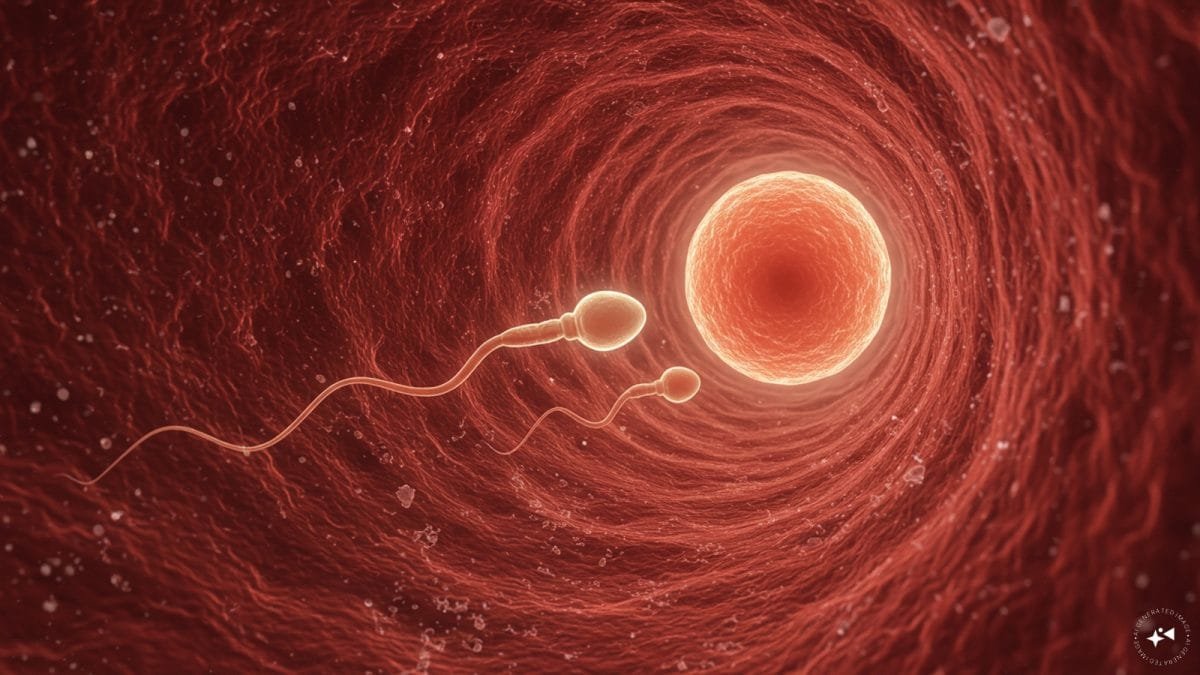Last Updated:June 15, 2025, 17:26 IST
The choices you make now—be it lifestyle adjustments, dietary considerations, or regular health check-ups—are investments in your fertility and overall well-being
Sperm health encompasses several factors, including sperm count, motility, and morphology. (AI generated)
In this article, we will give you advice to safeguard your sperm health & lay the foundation for a healthy family in the future.
The journey to becoming a dad is not just about envisioning a family but also about understanding the essential steps to preserve your sperm health. With growing awareness around lifestyle factors and their impact on male fertility, taking control of your reproductive health has never been more important.
Sperm health encompasses several factors, including sperm count, motility, and morphology. Each of these elements plays a vital role in a man’s ability to conceive. Sperm count refers to the number of sperms present in a given sample. A higher count increases the likelihood of successful fertilization. Motility is the ability of sperm to move efficiently, a key factor in the journey towards the egg. Meanwhile, morphology concerns the size and shape of sperm, with normal-shaped sperm being more capable of penetrating an egg.
The state of your sperm health today has far-reaching implications. Not only does it affect your ability to conceive, but it also influences the health of future generations. Studies suggest that optimal sperm health is linked to reduced risks of genetic disorders and improved overall offspring well-being. Proactively addressing your sperm health now can enhance the chances of a smooth journey to fatherhood.
Common Factors That Affect Sperm Quality
Lifestyle Choices: Your lifestyle choices can play a significant role in determining sperm quality. Smoking, for instance, is notorious for its detrimental effects on sperm health. Cigarettes contain numerous toxins that can lead to reduced sperm count and motility. Similarly, excessive alcohol consumption may impair sperm production and function. Moreover, a sedentary lifestyle, often linked with obesity, can negatively impact testosterone levels and, consequently, sperm quality. Regular exercise, on the other hand, not only boosts overall health but also promotes better sperm parameters.
Dietary Considerations: What you eat is just as important as how you live. A balanced diet rich in antioxidants—found in fruits and vegetables—can improve sperm quality by reducing oxidative stress, which damages sperm cells. Essential nutrients like zinc, vitamin C, and omega-3 fatty acids are particularly beneficial for maintaining healthy sperm. On the contrary, diets high in processed foods and saturated fats may impair sperm health. Ensuring a nutrient-rich diet can thus be a proactive approach to safeguarding your fertility.
Environmental and Occupational Hazards: Environmental factors also play a pivotal role in sperm quality. Exposure to environmental toxins such as pesticides, heavy metals, and industrial chemicals can have deleterious effects on sperm production and function. Occupational hazards in industries that handle these substances can increase the risk further. It’s advisable to take protective measures and minimize exposure whenever possible to lessen the impact on reproductive health.
Lifestyle Changes to Boost Your Sperm Health Today
Prioritise a Balanced Diet: A nutritious diet plays a crucial role in maintaining optimal sperm health. Prioritizing foods rich in antioxidants, such as fruits and vegetables, can help protect sperm from oxidative stress, a key factor in male infertility. Incorporate more leafy greens, berries, nuts, and seeds into your meals. Additionally, ensure you consume adequate amounts of proteins from lean meats, fish, and legumes, which are essential for hormone production and overall reproductive health.
- Zinc: This vital mineral is crucial for sperm production and testosterone metabolism. Foods like red meat, shellfish, and legumes are excellent sources of zinc.
- Omega-3 Fatty Acids: Found in fish such as salmon and mackerel, these essential fats help improve sperm structure by enhancing the fluidity of sperm cell membranes.
- Folate: Also known as vitamin B9, folate can improve sperm count and motility. Leafy greens, beans, and avocados are rich in folate.
Maintain a Healthy Weight: Achieving and maintaining a healthy weight is vital for sperm quality. Excess body fat can disrupt hormone levels, leading to decreased sperm production. Regular physical activity, combined with a balanced diet, can help maintain an appropriate weight. Aim for at least 150 minutes of moderate aerobic exercise per week, such as brisk walking or cycling, to keep your weight in check and boost your fertility potential.
Minimize Stress and Prioritize Sleep: Chronic stress and lack of sleep can negatively impact sperm health by altering hormone balances in the body. Implement stress-reduction techniques, such as mindfulness meditation or yoga, to keep stress levels manageable. Moreover, prioritize getting seven to nine hours of quality sleep each night to support hormone regulation and overall well-being.
Hydration Choices: Adequate hydration supports overall bodily functions, including sperm production. Aim for at least eight glasses of water daily to keep your body well-hydrated. Furthermore, regular physical activity and maintaining a healthy weight are beneficial for sustaining hormonal balance, which is essential for sperm production.
Avoid Harmful Substances: Exposure to certain substances can severely affect sperm quality. Avoid smoking and excessive alcohol consumption, as both have been linked to reduced sperm count and motility. Additionally, steer clear of recreational drugs and limit exposure to environmental toxins by using natural cleaning products and wearing protective gear if necessary.
Taking proactive steps with your diet and nutrition can significantly impact your future fertility and pave the way for healthy fatherhood. By prioritizing your sperm health today, you lay the groundwork for a healthier tomorrow, ensuring that when the time comes, you are ready to embark on the rewarding journey of fatherhood.
The choices you make now—be it lifestyle adjustments, dietary considerations, or regular health check-ups—are investments in your fertility and overall well-being. As you navigate this path with intention and care, you not only enhance your chances of becoming a dad but also set a positive example for future generations.

Prof (Dr) Saransh Jain is the winner of the Swasth Bharat Rattan Award and is a Certified and Licensed Sexologist by the American Board of Sexology. He is currently a Senior Consultant at Dr SK Jain’s Burlingto…Read More
Prof (Dr) Saransh Jain is the winner of the Swasth Bharat Rattan Award and is a Certified and Licensed Sexologist by the American Board of Sexology. He is currently a Senior Consultant at Dr SK Jain’s Burlingto… Read More
- First Published:
#Lets #Talk #Sex #Dad #Proactive #Steps #Preserving #Sperm #Health




